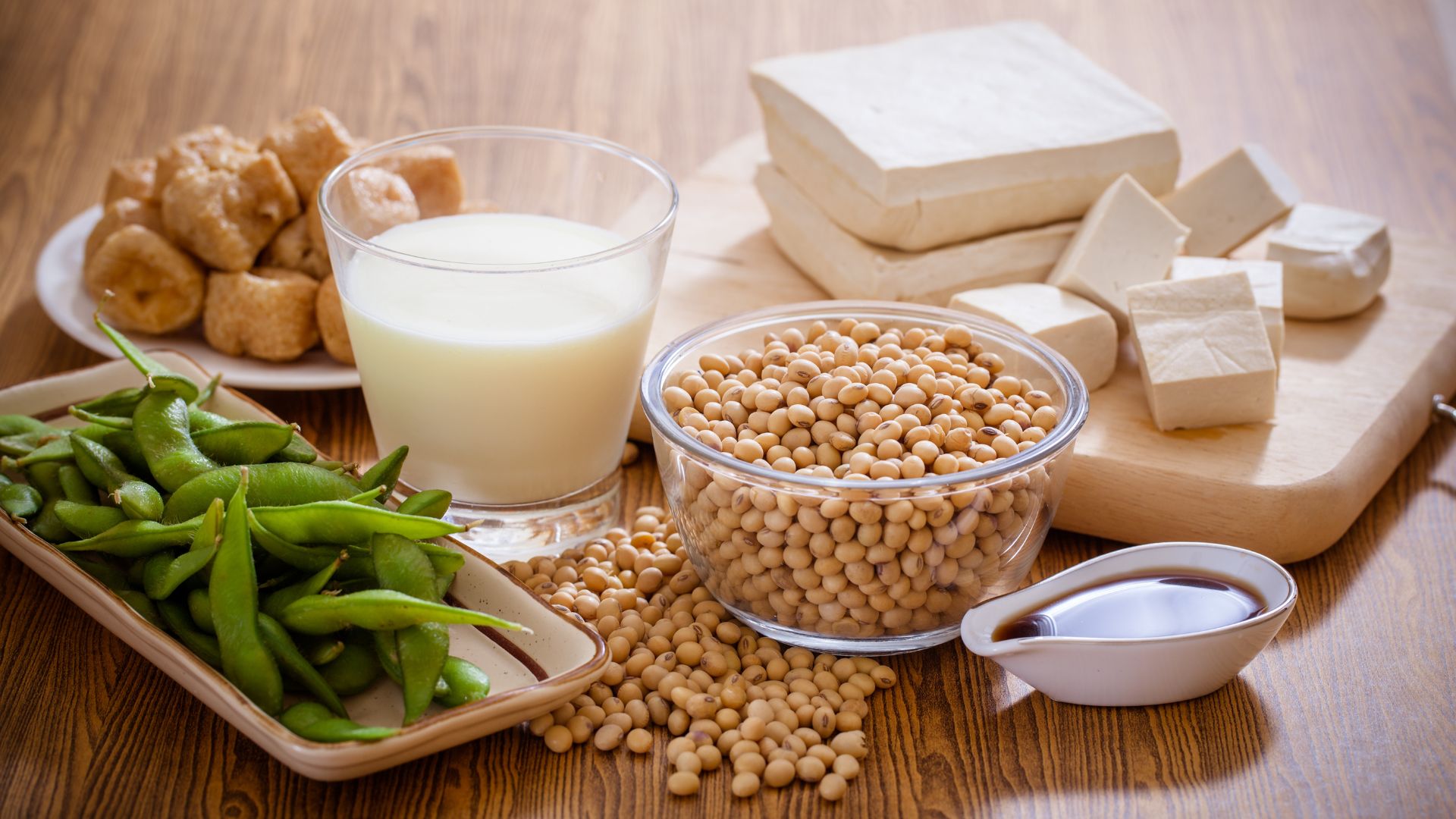
Soy, derived from the soybean plant, stands out as a superfood due to its high nutritional value and numerous health benefits. Rich in protein, fiber, vitamins, and minerals, soy enhances a balanced diet. This guide highlights the advantages of including soy in your diet.
Table of Contents
Nutritional Profile:
- Protein: Soy provides a complete protein, containing all nine essential amino acids the body requires. It serves as an excellent protein source, particularly for vegetarians and vegans.
- Fiber: Soybeans offer high dietary fiber, aiding digestion and promoting a healthy gut.
- Vitamins and Minerals: Soy delivers essential nutrients like B vitamins (including folate), vitamin K, calcium, iron, and magnesium.
- Isoflavones: Soy contains phytoestrogens called isoflavones, which possess antioxidant properties and may lower the risk of certain diseases.
Health Benefits:
1. Heart Health:
-
- Cholesterol Reduction: Regular consumption of soy protein has been shown to lower LDL (bad) cholesterol levels, which can reduce the risk of cardiovascular diseases.
- Blood Pressure: Some studies suggest that soy may help lower blood pressure and improve overall heart health.
2. Bone Health:
-
- Bone Density: Soy isoflavones and calcium contribute to maintaining bone density, which can be particularly beneficial for postmenopausal women at risk of osteoporosis.
3. Weight Management:
-
- Satiety: High-protein foods like soy can help increase feelings of fullness, which may aid in weight management and reduce overall calorie intake.
4. Menopausal Symptoms:
-
- Hot Flashes: The isoflavones in soy can mimic estrogen in the body, potentially alleviating some menopausal symptoms such as hot flashes.
5. Cancer Prevention:
-
- Prostate Cancer: Research suggests that soy consumption may be linked to a reduced risk of prostate cancer.
- Breast Cancer: Some studies indicate that soy may help reduce the risk of breast cancer, although results are mixed and ongoing research is needed.
Ways to Incorporate Soy into Your Diet:
- Soy Milk: Use this popular dairy alternative in smoothies, cereals, or as a beverage.
- Tofu: Include tofu in various dishes, such as stir-fries and salads.
- Tempeh: Enjoy tempeh’s nutty flavor in sandwiches, salads, and more.
- Edamame: Snack on steamed or boiled young soybeans for a nutritious option.
- Soy Sauce: Add soy sauce to enhance the flavor of various dishes.
Considerations:
- Allergies: Some individuals may have soy allergies or sensitivities. It's important to be aware of this if you experience any adverse reactions after consuming soy products.
- Genetically Modified Soy: Be mindful of the source of your soy products. Opt for organic or non-GMO soy products if you're concerned about genetically modified organisms.
Soy stands out as a nutrient-dense superfood offering a range of health benefits, from improving heart health to supporting bone density. Incorporating soy products into your diet adds variety and enhances your well-being. Consult a healthcare provider or nutritionist to ensure soy aligns with your individual health needs.



Leave a Reply
You must be logged in to post a comment.